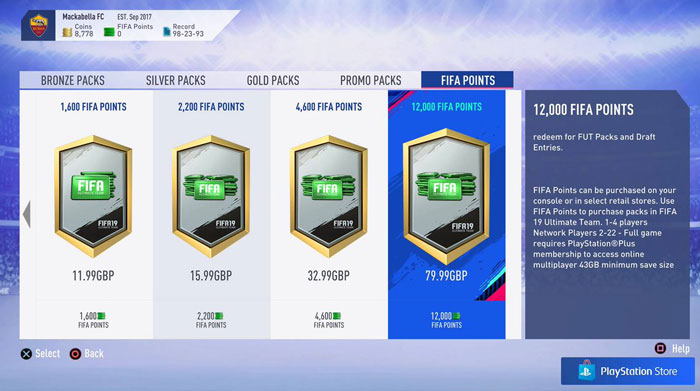Deleted
I actually think you're underselling the issue a bit.
I mean, it's not just about chipping cash out of people. I'll give a couple of examples.
Take Just Cause 3. It's a decent game that I've enjoyed playing through, and at Christmas I bought all of the DLC for less than £5. That DLC adds some features that make it easier to complete the core game, and also some additional missions and content. This irks me a bit, since I've bought the core game and now other bits are tacked on that affect the core game for money. Or Mass Effect 2/3 which were heavily story driven games, but held parts of the story and character arc behind a paywall (I refused to pay for that, and still haven't). That really irritates me, because that to me is not far off extorting as you describe it.
But loot boxes are a whole new level of terrible. Take a game that I actually enjoy - World of Warships. It is free to play, and you can unlock new ships by playing through the game. In order to make money though, the model is to sell gear that makes small modifications to gameplay, speeds up progress, or just directly offers a new ship that will have slightly different characteristics. I accept that as a cost of playing a free to play game, and I choose not to spend money on those things.
However, they also allow you to buy crates at £2-3 each. In those crates, you can get special ships that are no longer available in the store, but the drop rate is not known. So you could buy 20 crates, and not get a single ship that you want. A chap in the US said on one of the forums recently that he spent $800 on crates to unlock all of the ships that were available in them. Ergo, you could potentially spend >$500 without actually getting the original item that you were looking for.
To me there is very little difference between this and gambling. If stores want to sell in-game content, then I don't see how we can stop them (other than refusing to participate), but I genuinely think that loot boxes and the like are skirting around legislation.
I thought the issue was loot boxes, though?
To clarify my abocve comments, which maybe could be misintetpreted, I have no issue with ‘extra content’, be it DLC or a separately purchasable pack ….
IF it expands the original game, rather thsn being intrinsic to what you bought in the first place,
I mean I buy a game for £40-ish, I expect to be able to play it without having to buy extra bits, and worse yet, buy a ‘pig-in-a-poke’ where you may or may not get what you really want/need.
However …. if that ‘extra content’ is effectively a whole new scenario, that's very different. I've done that numerous times …. though mainly in the days where it might be £15-£20, and effectively was a new game, new levels, new ‘monsters’/weapons/maos/levels, etc, basically bolted onto the exusting game engine. Even with that add-on pack, I knew pretty much what I was getting and,
up front, what it was going to cost.
So, I actually agree with you, though there might be a grey area between add–on module, and “DLC”. It depends, I guess, on what the DLC is.
What I object to, and in fact
will not buy into, is a game where to progress, or to progress at an acceptable rate, you have to keep sticking your hand in your wallet, possibly again and again. In part, it's because doing that, IMHO, screws up the whole game ‘balance’. To me, a game should make me work for it, but also shouldn't make it nearly impossible. Getting that balance right, getting that effort/reward system right, is what makes a decent gsme truly enjoyable it's what brings me back, again and again, wanting more. That is also what gets me buying that scenario pack, if the original game was good enough.
I hope that clarifies what I meant, espevially by buying a complete game. Even a complete game can have add-ons,
provided they add to the game and aren't necessary to enjoy the game I spent that £30-£50 pn, up-front. It must, absolutely MUST be capable of stsnding on it's own, without in-game purchases.
Maybe that makes me out of toych and old-fashioned but, well, it's kinda like buying a book - I expect to get the whole book and not pay extra for more characters or plot elements. If the author then brings out another book using the same settings, characters, etc but a new or even sub-plot, fine. But I don't expect to pay per clue.








